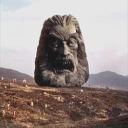Yahoo Answers is shutting down on May 4th, 2021 (Eastern Time) and beginning April 20th, 2021 (Eastern Time) the Yahoo Answers website will be in read-only mode. There will be no changes to other Yahoo properties or services, or your Yahoo account. You can find more information about the Yahoo Answers shutdown and how to download your data on this help page.
Trending News
What is the geologic time scale measured in?
3 Answers
- supernovamike11Lv 74 years agoFavorite Answer
Usually in millions of years. Sometimes thousands. Occasionally billions.
- busterwasmycatLv 74 years ago
I am not certain I would call the Geologic Time Scale as being "measured" so much as defined. The scale is divided into Eons, Eras, Periods, and so on, which are time-stratigraphic (event-related, system-wide) units. We define absolute time frames for those units based (primarily) on radiometric dating, the use of radioactive element decay as a means to measure time since a very specific event. Those are the "measurements" that serve to place real time values on the scale.
We do not really measure time or passage of time. We define ages for events through secondary means. Time of events is expressed in terms of years before present.
The values that are used for limiting geological time units depend on the precision of the measurements being used to define the timing of events. How such measured values are applied to defining the time frames for geological time scale units depends in large part on how closely the measured event can be shown to coincide with the beginning or end of a geological time unit. That is, often we measure things that happened before or after the limit of a defined geological time unit, and those measurements constrain a window of time where the unit must terminate or commence.
Most values are given to a precision of 3 significant digits. Some are given to 4 significant digits, and others only to 2.




